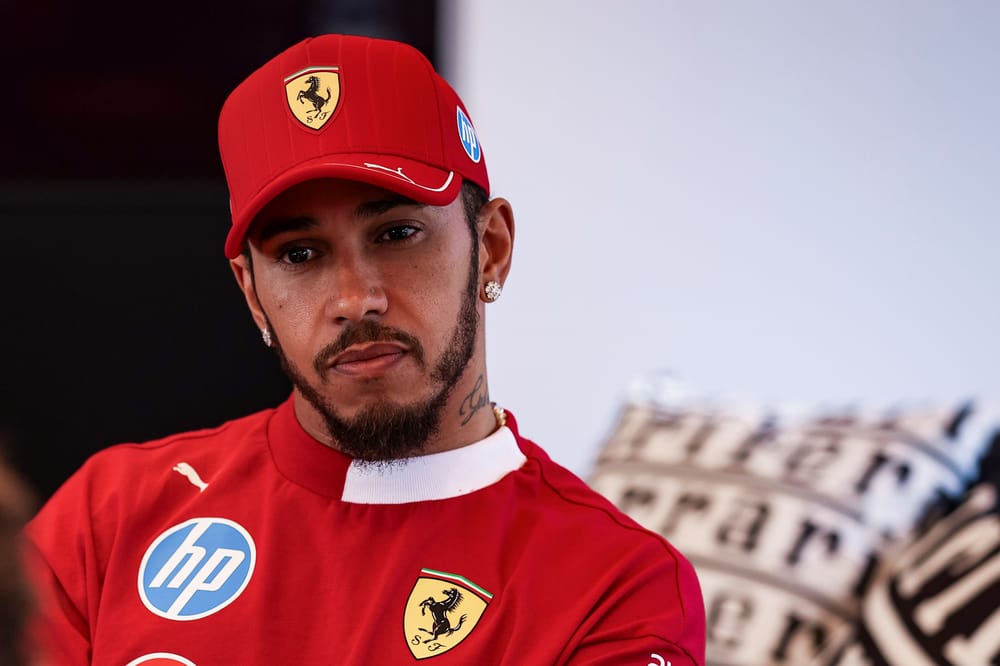Lewis Hamilton’s downbeat assessment of his own “useless” performance over Formula 1’s Hungarian Grand Prix weekend grabbed attention.
But while the seven-time champion said his feelings remained the “same” on Sunday evening, even having had time to reflect on what happened in qualifying, his views are not aligned with his bosses.
Indeed, Ferrari team principal Fred Vasseur is clear that he sees no cause for alarm over Hamilton’s outlook on his disappointing Hungaroring weekend.
Vasseur insists such self-criticism falls into the pattern of an ultra-competitive driver who accepts nothing less than the best from both those he works with and himself.
“He’s demanding,” explained Vasseur about Hamilton. “But I think that’s also why he’s a seven times world champion: that he’s demanding with the team, with the car, with the engineers, with the mechanics, with myself also.
“But first of all he’s very demanding with himself. I think it was always good motivation for him and the main reason of performance.”
The Hungary situation
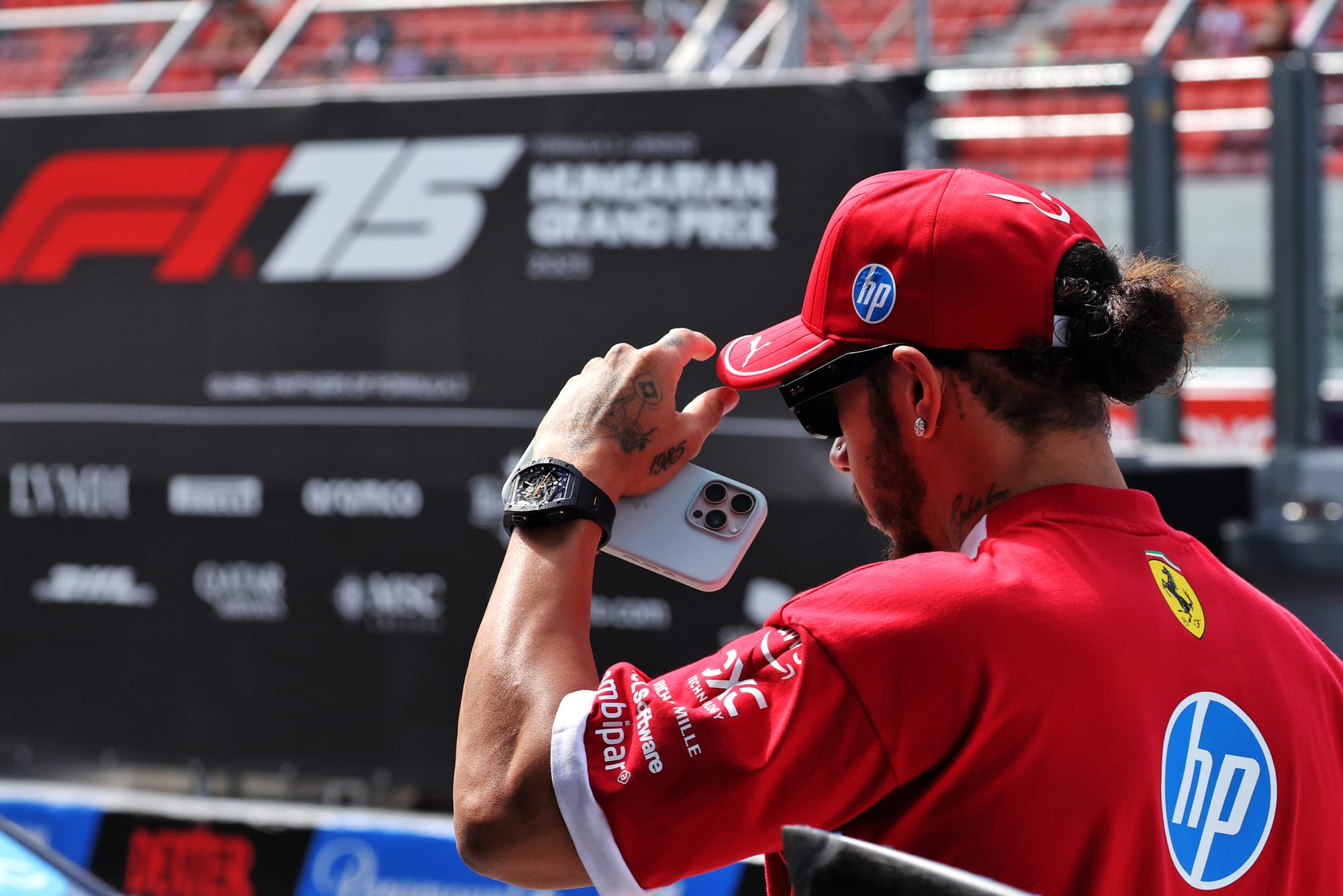
While the headline impressions of the weekend did not look good – with Hamilton left in P12 after getting knocked out in Q2 and Charles Leclerc starting on pole position – Vasseur argues that the situation needs putting in context as there are important details getting lost.
His primary view is that things were made to look much worse than they were because Ferrari found itself on the knife-edge in Q2 – at a time when the competitiveness of the grid leaves no room for error - with both cars at risk of going out.
Vasseur added: “For sure when you are seven times world champion and your team-mate is on pole position and you are out in Q2, it’s tough. It’s a tough situation.
“But also he was in front of Charles in Q1, with the first set he was one tenth off Charles in Q2.
“We were not far away from having the two cars out in Q2. The outcome in the end is that Charles is able to do pole position. But honestly the gap is not 1.2s.
“I can understand the frustration from Lewis. This is normal. He will come back. We discussed a lot yesterday. The race was difficult because he was stuck in the DRS train. But the pace was good. I’m sure he will be back at Zandvoort and he will perform.”
Vasseur’s assessment of how tight things were between them through Hungary is correct. Comparisons of their runs throughout the two qualifying segments there show the differences are not big enough to suggest a driver change is needed.
Q1
First runs
Hamilton: 1m15.949s
Leclerc: 1m16.216s
Second runs
Hamilton: 1m15.733s
Leclerc: 1m15.582s
Q2
First runs
Hamilton: 1m16.201s
Leclerc: 1m16.185s
Second runs
Hamilton: 1m15.702s
Leclerc: 1m15.455s
The season trend
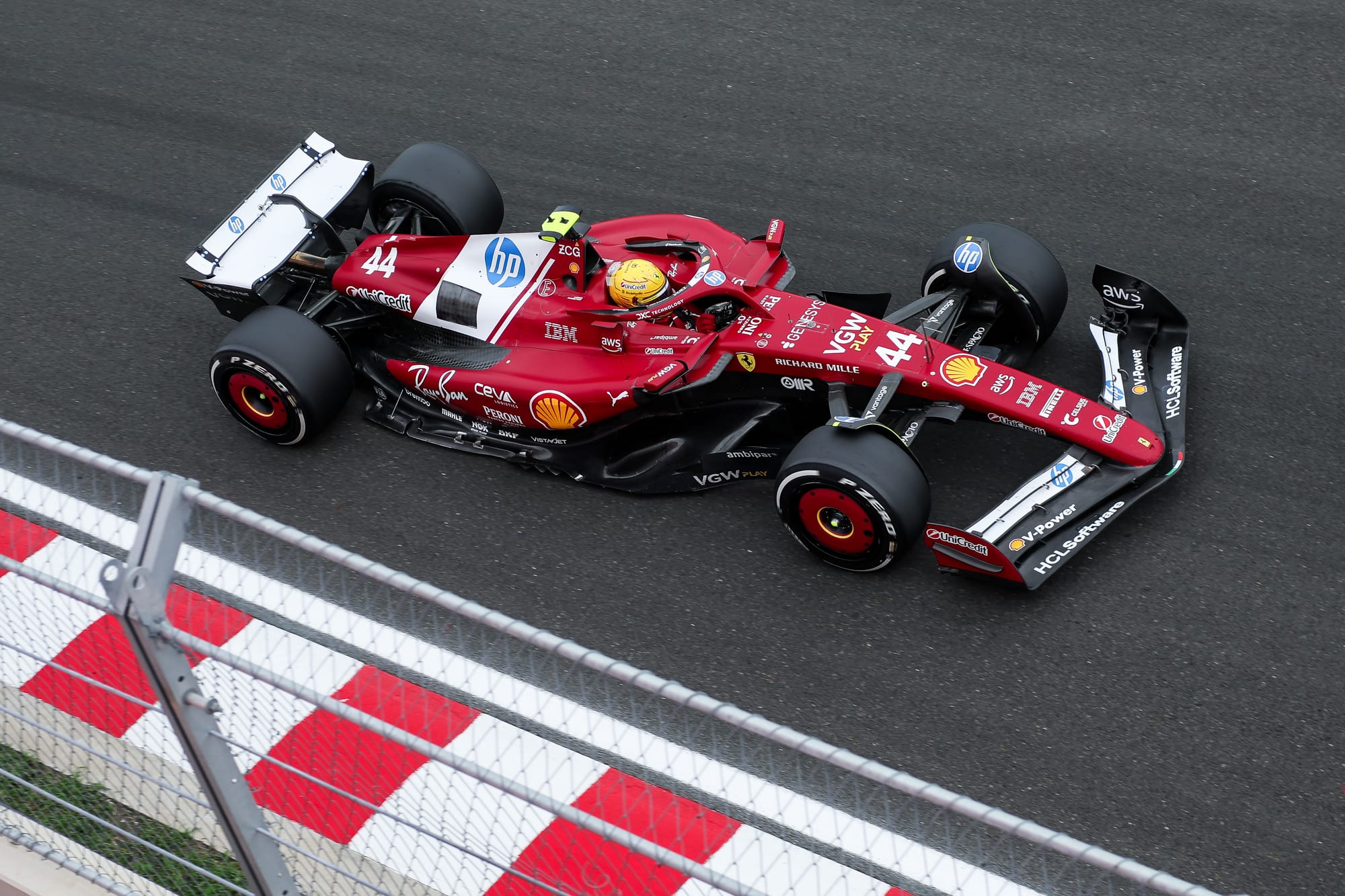
Vasseur’s conviction about Hamilton’s performance not being “useless” extends far beyond just the Hungarian GP.
While Leclerc has been the better of the two Ferraris in qualifying this year, the margins have not been excessive and the trend more recently (up until Belgium at least) had actually looked positive.
In all the qualifying sessions we have this year (14 grands prix and 3 sprints), the advantage lies with Leclerc. He is 10-4 up in normal qualifying and 2-1 up in sprints. As an average across the year, Hamilton’s times end up being 100.214% of Leclerc’s.
If we dig a bit deeper into the data, comparing the sessions that both drivers took part in, since Miami things have been closer than they were earlier in the campaign.
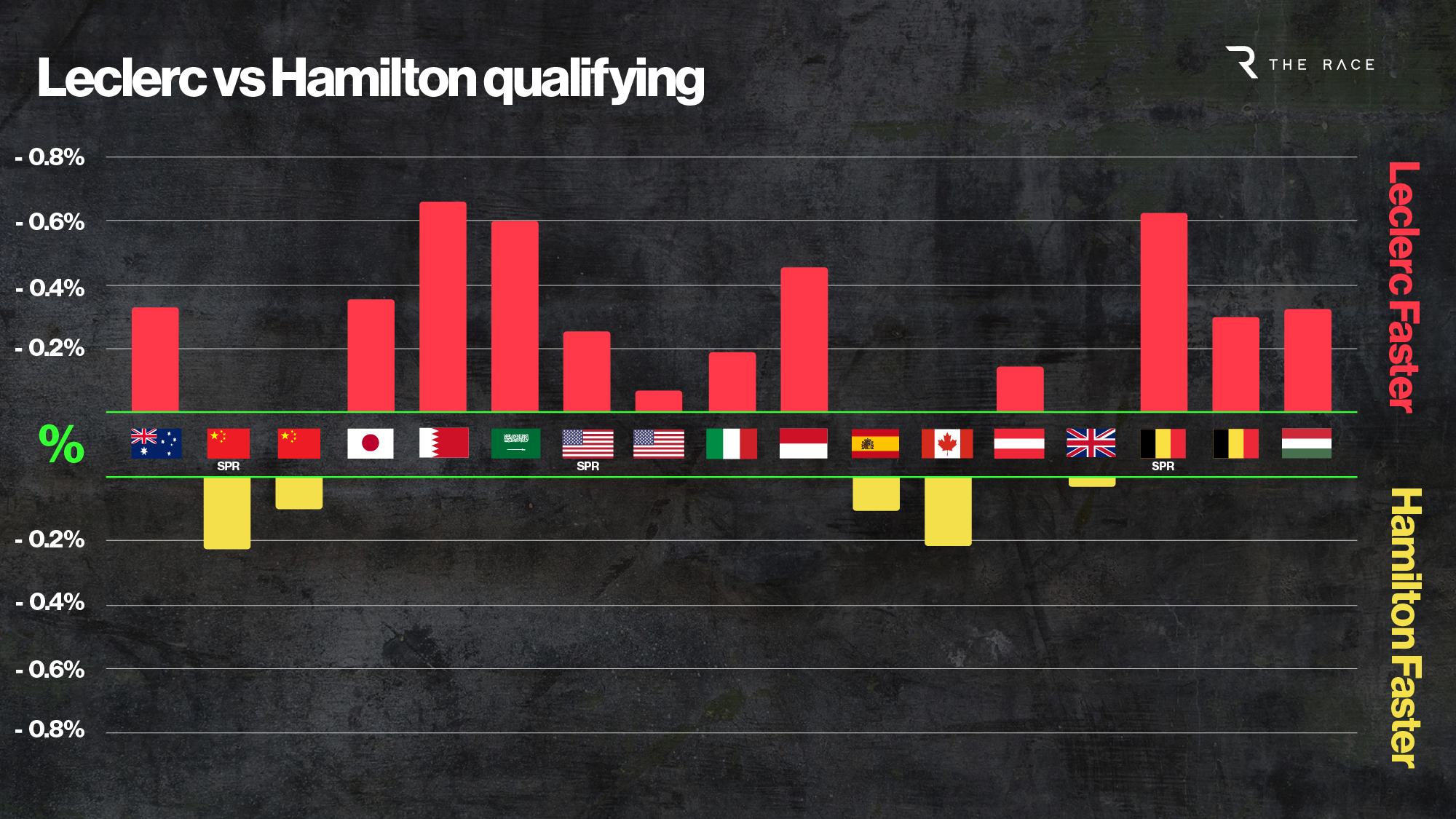
And this is especially true compared to when the deficit was at its largest in Bahrain and Saudi Arabia – with both events leaving Hamilton more than 100.6% adrift.
What perhaps made Hungary seem so bad is that it marked a potential momentum shift.
So just when Hamilton had got on an even keel over the run of the Canada/Spain/Austria/Britain races (where cumulatively he was the quickest driver at 99.947% of Leclerc’s pace), it all appears to have fallen apart again.
On paper, Hamilton’s Q1 exits in Belgium were a disaster, but Vasseur thinks it important even those are put in some context – as the errors he made in sprint qualifying and the main session disguised other narratives.
In sprint qualifying at Spa, for example, before the new rear brake configuration caught him out at the chicane, Hamilton had matched to the nearest thousandth Leclerc’s best time from SQ1 over the first two sectors – and had had a good run up until the point he hit the brakes.
In qualifying for the main race, Hamilton was knocked out in Q1 for running over the white line at Raidillon, but the laptime he did complete (1m41.664s) was just 0.029 seconds off Leclerc.
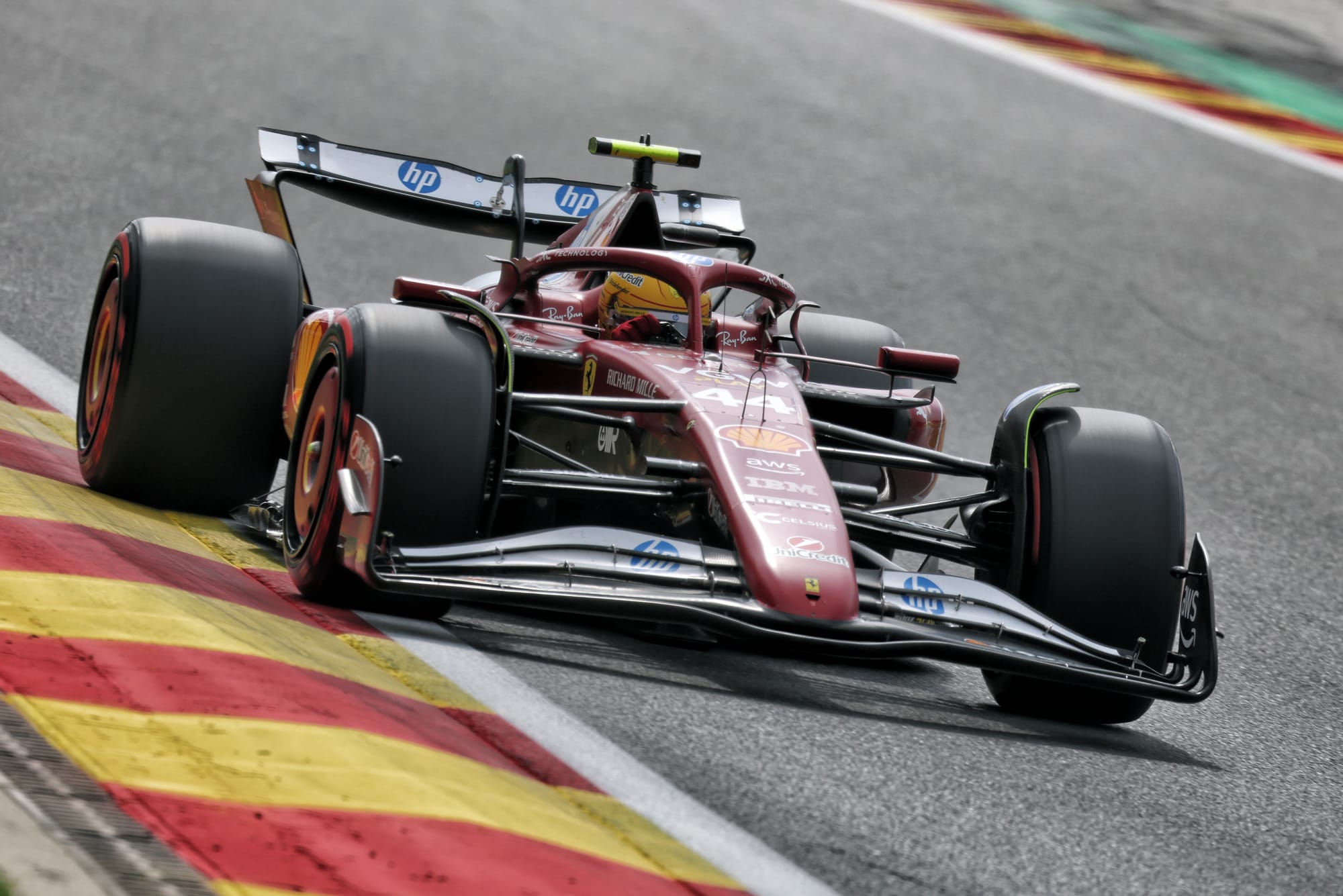
The picture of pace potential is therefore very different to both the final grid positions and even the stats on how their form compares.
This is something that Vasseur is well aware of. He said: “I’m not an expert in statistics but he had a good recovery after Miami. In Spain, Silverstone, Austria, Canada, he was matching Charles. Two or three times he was even in front of Charles in quali.
“[In Spa] when he lost the car at Turn 14, he was six tenths faster than Charles.
“I know the game, you have to finish the lap and you have to finish the race, and it makes no sense to lead the race for 40 laps if you’re not able to finish. But you have to avoid to draw a conclusion too quickly.”
Frustration to the fore
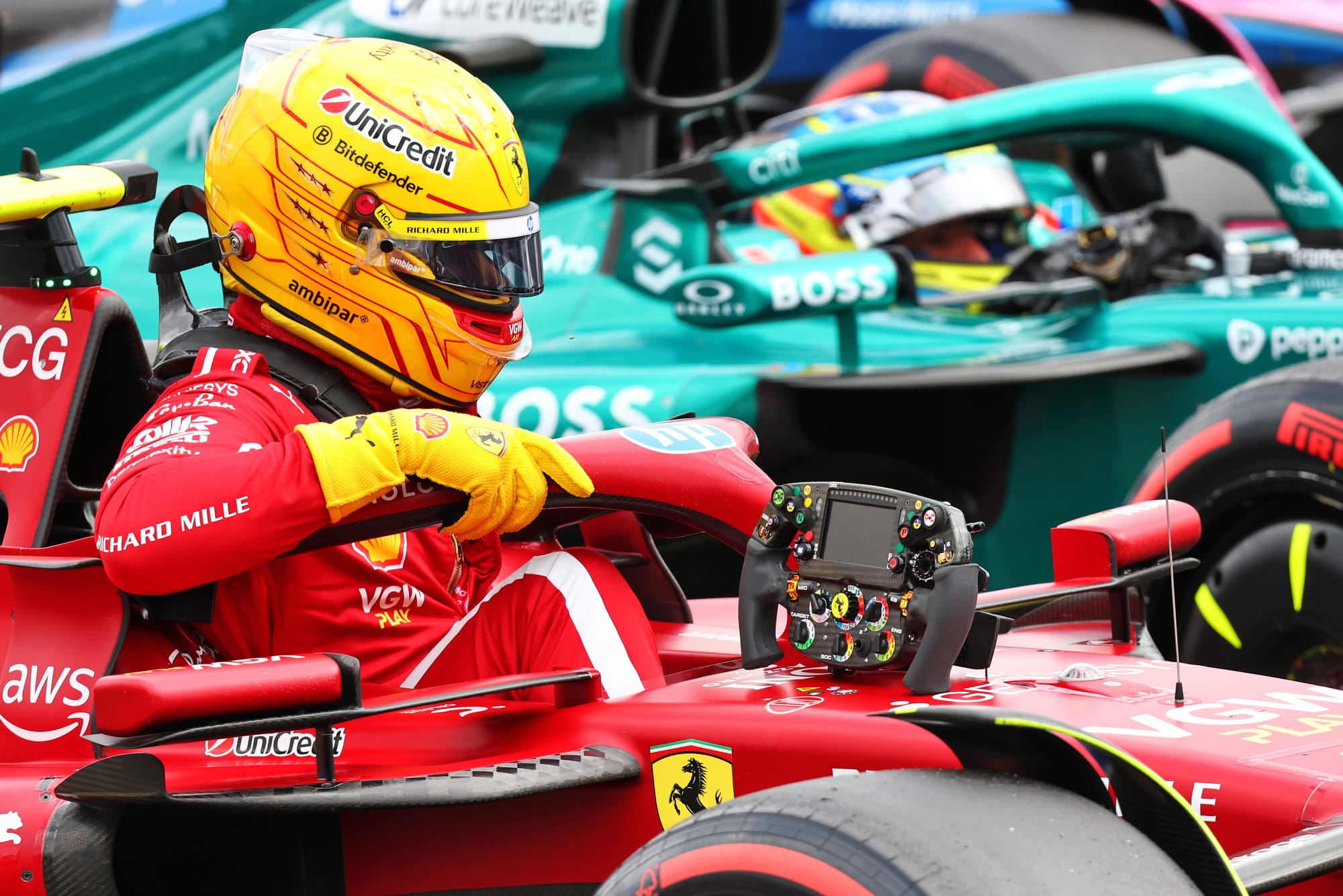
Of course, it is very easy for teams to get lost in a world where they theorise themselves to the front of the grid.
After all, there is an undeniable truth that the only thing that really counts is what is delivered on track.
This is why Hamilton himself was refusing to see any sliver of hope from his Hungary weekend, being just 0.015 seconds from making it through to Q3 where we could almost certainly have been up near the front.
Asked if he was looking at the bigger picture, he said: “Not particularly. Because in reality it's not the case - the result is the result..”
But from Vasseur’s perspective, while the disappointments of Belgium and Hungary - and Hamilton’s comments – have made things look terrible, his own perception of things is quite serene.
Asked what his solution was to lift Hamilton’s motivation now, Vasseur said: “I don’t need to motivate him. Honestly. He is frustrated but not demotivated. It’s a completely different story.
“I can perfectly understand the situation and you can sometimes make comments on what the driver is saying in the car. But in other sports, like in football, I’m not sure that it would be much better.
“I can understand the frustration but we are all frustrated. Sometimes just after the race or just after the quali you are very disappointed, and the first reaction is hard.
“But we all know that we are pushing in the same direction.”


